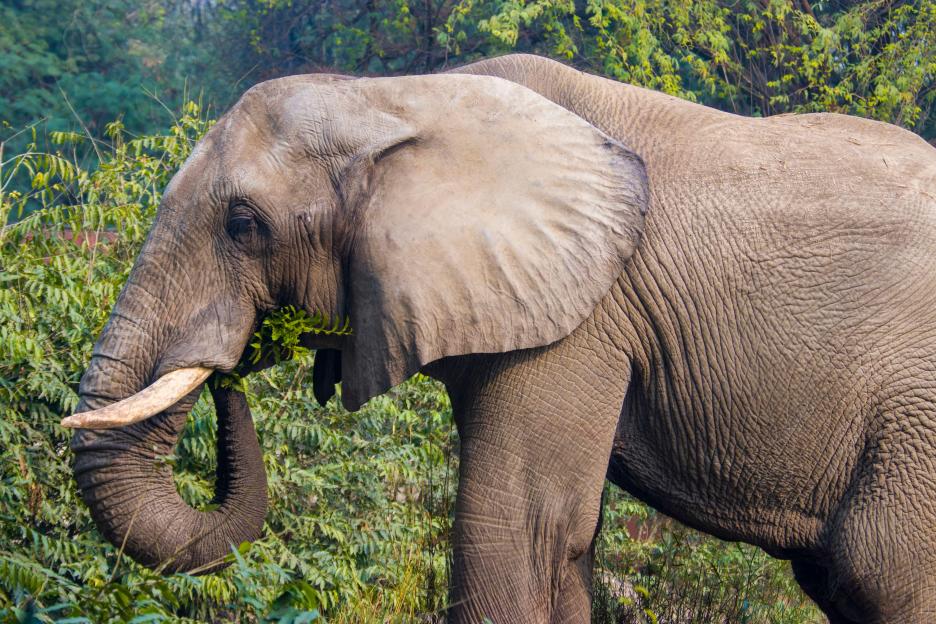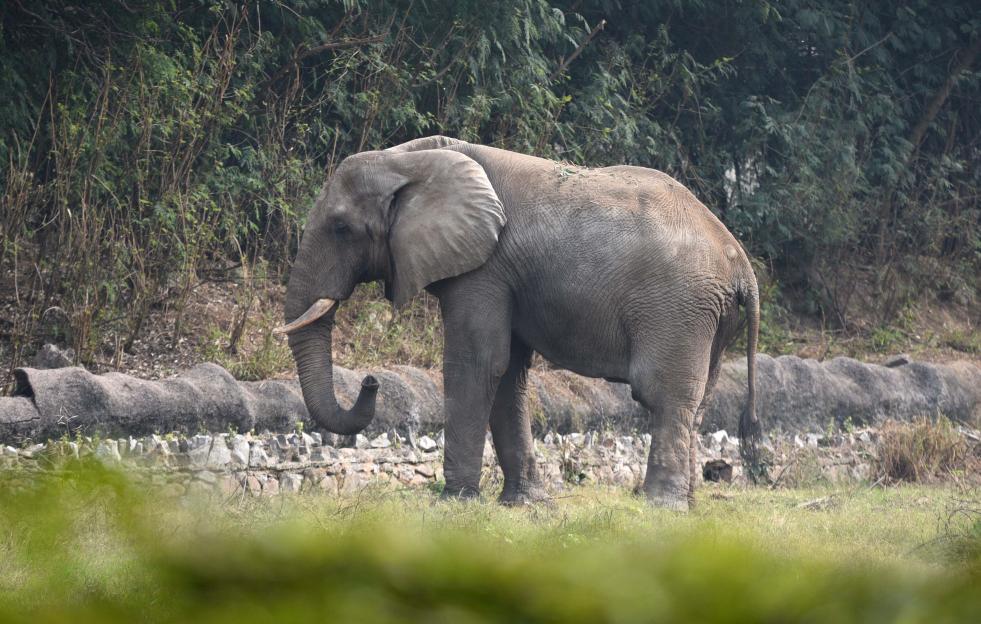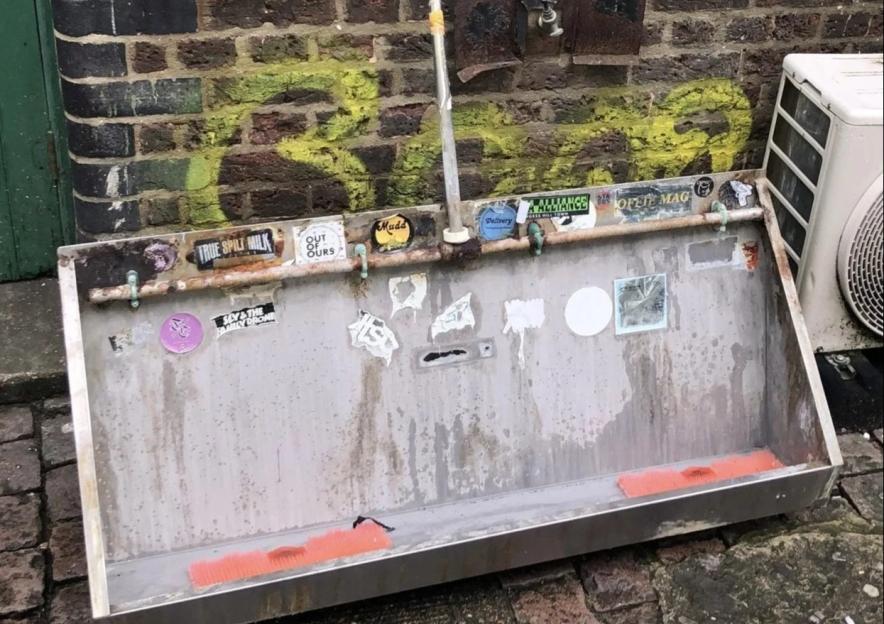Table of Contents
An autopsy report has disclosed the cause of death of the world's loneliest elephant, who spent over two decades in isolation at an Indian zoo.
The 29-year-old elephant, named Shankar, reportedly passed away in September due to the encephalomyocarditis virus (EMCV).
 Shankar had refused food all day leading up to his tragic death.Credit: Alamy
Shankar had refused food all day leading up to his tragic death.Credit: Alamy
EMCV is a rare rodent-borne virus that can infect various animals, leading to sudden death due to inflammation of the heart and brain.
Dr. Sanjeet Kumar, director of the zoo in India's capital, Delhi, where Shankar lived in isolation, confirmed that EMCV was identified during the autopsy.
He further explained that it is an acute disease and Shankar showed no visible symptoms.
“There have been some previous cases reported in European zoos and other facilities globally. Generally, it infects pigs, but a wide range of zoo animals can be affected, including big cats and several lesser-known species,” Dr. Kumar told The Indian Express.
Shankar arrived in India in 1998 alongside another elephant as a diplomatic gift from Zimbabwe to the former Indian President Shankar Dayal Sharma.
Unfortunately, Shankar's companion died just a few years later, in 2001, leaving him alone.
A former zoo official, who wished to remain anonymous, stated that after the death of his companion, the zoo attempted to integrate Shankar with Asian elephants.
However, this plan ultimately failed when Shankar and the other elephants displayed aggression towards each other.
In 2012, the magnificent creature was moved to a new enclosure, resulting in his solitary confinement, despite a federal ban enacted in 2009 prohibiting the isolation of elephants for more than six months.
Shankar remained alone in the enclosure until his passing.
He is believed to have died on Wednesday evening after refusing food for most of the day.
Tragically, within 40 minutes of collapsing, Shankar passed away despite the best efforts of veterinary staff.
The Ministry of Environment, Forest and Climate Change initiated an investigation into the cause of death shortly after Shankar's passing.
Dr. Kumar mentioned that EMCV is transmitted through rodents but added that managing them in open enclosures presents a significant challenge.
EMCV was only isolated in India at the end of the 1960s, and Shankar's case marked the first recorded death caused by the virus.
The Delhi zoo had been closed in August due to an avian influenza outbreak.
The only remaining African elephant in India is a male named Richie, residing at the Mysuru Zoo in the southern state of Karnataka.
 Shankar lived in an isolated enclosure for two decades.Credit: Getty
Shankar lived in an isolated enclosure for two decades.Credit: Getty







